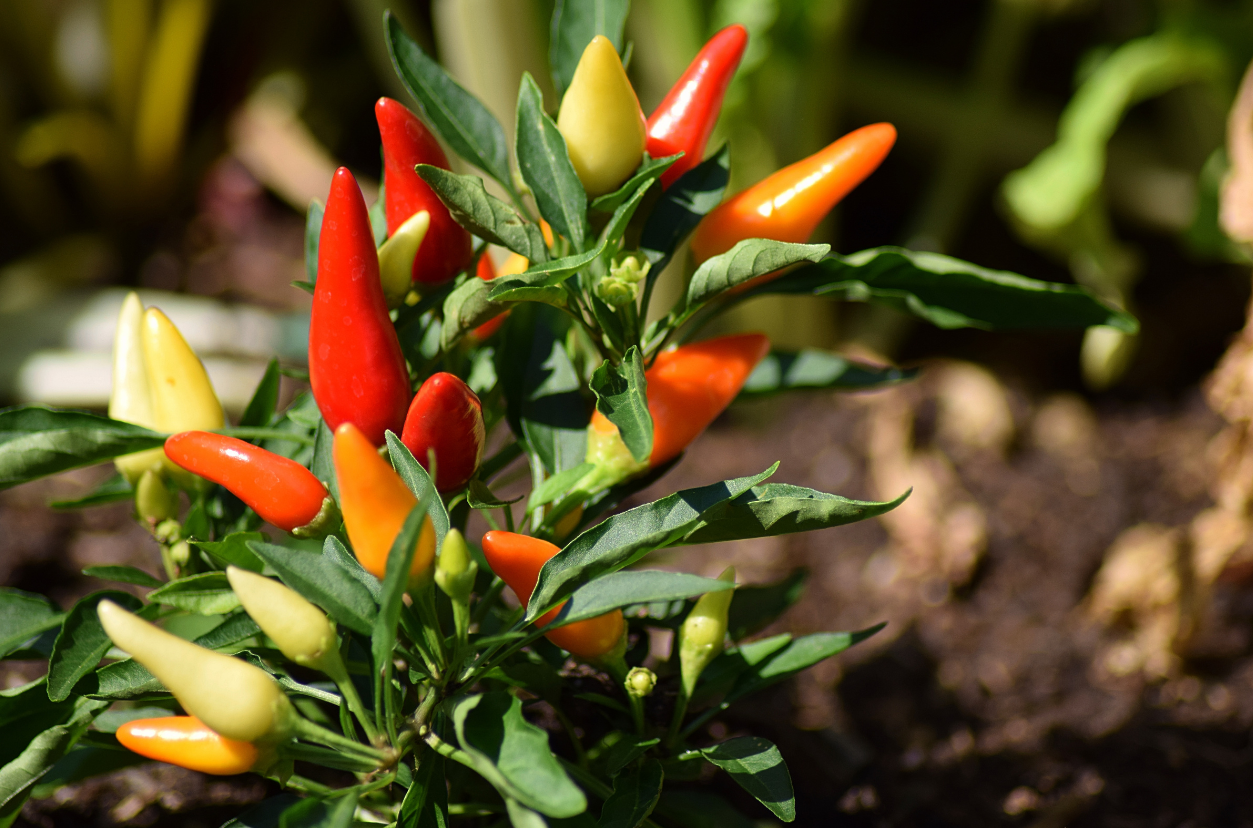Selecting the Best Fertilizers for Peppers: Specialist Recommendations
Selecting the Best Fertilizers for Peppers: Specialist Recommendations
Blog Article
How Plant Foods Play a Vital Function in Growing Healthy And Balanced and Bountiful Pepper Crops
Plant foods offer as the backbone of effective pepper farming, using a strategic method to nurturing the soil and fostering optimal plant growth. The intricate dancing between important nutrients and the pepper plants' physiological procedures highlights the essential function that fertilizers play in making sure an abundant harvest. From fueling durable root growth to strengthening condition resistance, the effect of fertilizers is far-ranging in the growing of fruitful and healthy pepper plants. Remain tuned to discover the nuanced methods which plant foods add to the prospering of pepper plants and the lasting methods that underpin their efficacy.
Significance of Nutrient-Rich Plant Foods
The use of nutrient-rich plant foods plays a pivotal function in improving the performance and quality of pepper crops in modern-day agricultural methods. Nitrogen, potassium, and phosphorus are main nutrients that are important for the development and advancement of pepper plants.
Inadequate levels of these nutrients can lead to stunted development, lowered returns, and vulnerability to illness (best fertilizers for peppers). Nutrient-rich fertilizers supply a targeted option to make sure that pepper plants get the required elements for optimum development and efficiency. Furthermore, these fertilizers help improve dirt fertility gradually, producing a sustainable atmosphere for long-lasting pepper growing
Enhancing Plant Growth and Development
To enhance plant development and advancement in pepper plants, tactical application of nutrient-rich plant foods is important. Plant foods play a crucial function in boosting the overall health and productivity of pepper plants by giving them with vital nutrients that might be lacking in the soil.
In addition to these macronutrients, micronutrients such as magnesium, zinc, and iron are also crucial for the correct performance of various plant processes. Iron, for example, is needed for chlorophyll production, which is important for photosynthesis and general plant development. Zinc plays a crucial role in enzyme activity and hormonal agent synthesis, influencing plant development and development at a cellular level. Magnesium is vital for the development of chlorophyll and total power transfer within the plant.

Boosting Condition Resistance With Fertilizers
By purposefully including targeted plant foods, farmers can bolster the condition resistance of pepper plants, making certain optimum plant wellness and efficiency. Plant foods consisting of vital nutrients like nitrogen, potassium, and phosphorus play an essential role in reinforcing pepper plants' immune systems, making them a lot more durable to various conditions.

Making Best Use Of Pepper Return With Fertilization
Making use of a balanced fertilizing technique is essential to achieving optimum pepper yield and making certain optimum plant efficiency. By providing peppers with the ideal nutrients at the best time, farmers can significantly improve their yield capacity. Nitrogen, potassium, and phosphorus are important aspects for pepper growth, with nitrogen assisting in leaf and stem growth, phosphorus supporting root growth and blossom development, and potassium advertising overall plant health.
To maximize pepper return, it is vital to carry out dirt examinations check this to determine existing nutrition degrees and identify any type of shortages that need to be dealt with. Based upon these results, farmers can establish a customized fertilization plan that satisfies the details needs of their pepper crops. In addition, appropriate fertilizing strategies such as split applications throughout the expanding season can guarantee continual nutrient availability for the plants.

Sustainable Fertilizer Practices for Peppers
In considering lasting fertilizer techniques for peppers, it is critical to focus on long-lasting soil health and environmental stewardship in conjunction with taking full advantage of crop productivity. One key approach is the usage of natural plant foods such as garden compost, manure, or cover crops, which not only provide essential nutrients to the peppers yet additionally add to soil framework and microbial task. best fertilizers for peppers.
Furthermore, precision agriculture strategies, such as dirt testing and targeted nutrient applications, can help maximize fertilizer use, ensuring that peppers obtain the nutrients they require without excess runoff into rivers. This not just benefits the environment by lowering contamination but additionally conserves costs for farmers by reducing waste. By adopting lasting fertilizer practices, pepper farmers can protect the health of their plants, soil, and bordering environments for future generations.
Verdict
In verdict, plant foods are important for growing plentiful and healthy and balanced pepper crops. best fertilizers for peppers. They provide needed nutrients for plant growth and advancement, boost illness resistance, and make the most of return. By executing lasting fertilizer methods, farmers can ensure the long-lasting wellness of their pepper crops and add to a more environmentally-friendly and efficient agricultural system
The detailed dance in between essential nutrients and the pepper plants' physiological procedures underscores the critical duty that fertilizers play in making sure a plentiful harvest.To optimize plant growth and growth in pepper crops, tactical application of nutrient-rich fertilizers is necessary. Plant foods play an important duty in enhancing the general wellness and performance of pepper plants by giving them with important nutrients that may be doing not have in the dirt.By purposefully incorporating targeted fertilizers, farmers can bolster the disease resistance of pepper crops, ensuring optimal plant health and wellness and performance. Plant foods containing important nutrients like potassium, phosphorus, and nitrogen play a crucial role in reinforcing pepper plants' immune systems, making them more durable to different diseases.
Report this page